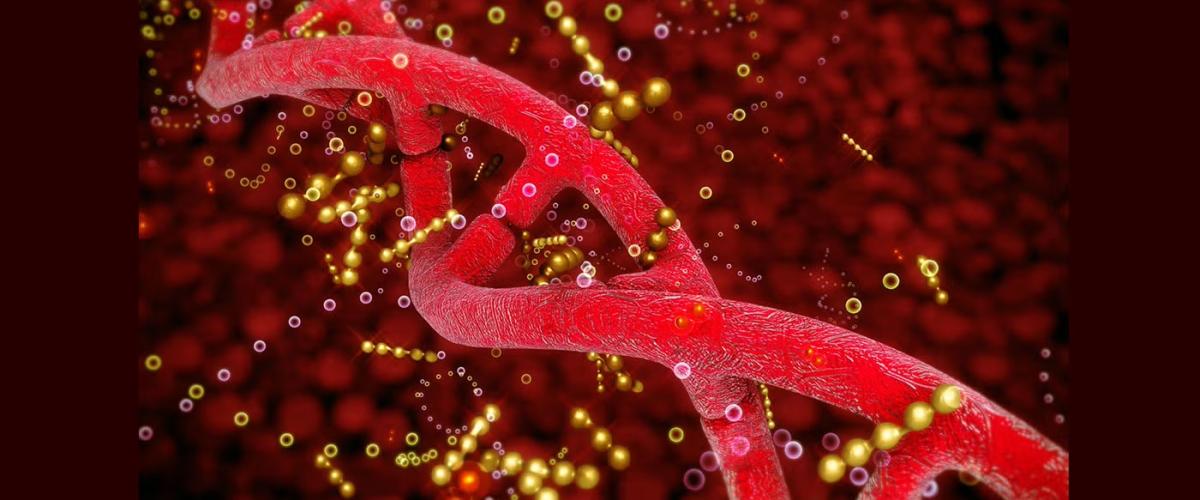Research may offer clue into biologic role of these genes in tumor progression
Little is known about the molecular basis of aberrant protein glycosylation, a complex enzymatic process that is a hallmark of many human cancers—including colorectal cancers (CRC). Yet in a recent study published in the online journal Scientific Reports, Case Western Reserve University School of Medicine researchers successfully characterized the mutational landscapes of glycosylation-associated genes in colon cancer. In the process, they have identified three glycosyltransferases as significant mutational targets in CRC. Their findings are significant because they strongly suggest that functionally deleterious mutations in glycosyltransferase genes in part underlie aberrant glycosylation, and contribute to the pathogenesis of molecular subsets of colon and other gastrointestinal malignancies. The study, “Biochemical and functional characterization of glycosylation associated mutational landscapes in colon cancer,” is available online; Scientific Reports is part of the Nature Publishing Group. Kishore Guda
Kishore Guda, assistant professor of general medical sciences (oncology) at the School of Medicine, led the research, which involved the targeted re-sequencing of 430 glycosylation-associated genes and matched primary tumor tissues. Through this process, Guda and his team identified three glycosyltransferases (B3GNT2, B4GALT2, ST6GALNAC2) as significant mutational targets in CRCs.
Analysis of independent large-scale tumor tissue datasets confirmed recurrent mutations within these genes in colon and other gastrointestinal cancers. The study lays important groundwork for the future characterization of these glycosyltransferases that may provide additional insights into the biologic role of these genes in colon cancer progression.
"With so many questions surrounding the potential role of aberrant glycosylation in tumor progression, we were excited to conduct this research that builds on our previous findings of mutations in the gene encoding for the enzyme GALNT12 in a subset of colon cancer cases,” Guda said. “Our findings demonstrate that these mutant glycosyltransferases have a significant impact on the encoded enzymatic activity and/or the migratory potential of colon carcinoma cells, and set up future research that can further explore their role in tumor progression.”
A team of Case Western scientists collaborated on this paper: Srividya Venkitachalam; Leslie Revoredo; Vinay Varadan; Ryan E. Fecteau; Lakshmeswari Ravi; James Lutterbaugh; Sanford D. Markowitz; Joseph E. Willis; Thomas A. Gerken; and Guda. Other contributors include Martina Veigl and Simone Edelheit at the CWRU Genomics Core; Mike Sramkoski at the Cytometry and Imaging Core; and Daniela Schlatzer at the university’s Center for Proteomics and Bioinformatics.
Research was generously supported by PHS awards: K08 CA148980 (K.G.); Case GI SPORE P50 CA150964 (V.V., S.D.M., J.E.W., K.G.); P30 CA043703 (V.V., S.D.M., J.E.W., K.G.); U54 CA163060 (V.V., S.D.M., J.E.W., K.G.); R01 CA078834 (T.A.G.) and U01 GM113534 (T.A.G).
Kishore Guda
Kishore Guda, assistant professor of general medical sciences (oncology) at the School of Medicine, led the research, which involved the targeted re-sequencing of 430 glycosylation-associated genes and matched primary tumor tissues. Through this process, Guda and his team identified three glycosyltransferases (B3GNT2, B4GALT2, ST6GALNAC2) as significant mutational targets in CRCs.
Analysis of independent large-scale tumor tissue datasets confirmed recurrent mutations within these genes in colon and other gastrointestinal cancers. The study lays important groundwork for the future characterization of these glycosyltransferases that may provide additional insights into the biologic role of these genes in colon cancer progression.
"With so many questions surrounding the potential role of aberrant glycosylation in tumor progression, we were excited to conduct this research that builds on our previous findings of mutations in the gene encoding for the enzyme GALNT12 in a subset of colon cancer cases,” Guda said. “Our findings demonstrate that these mutant glycosyltransferases have a significant impact on the encoded enzymatic activity and/or the migratory potential of colon carcinoma cells, and set up future research that can further explore their role in tumor progression.”
A team of Case Western scientists collaborated on this paper: Srividya Venkitachalam; Leslie Revoredo; Vinay Varadan; Ryan E. Fecteau; Lakshmeswari Ravi; James Lutterbaugh; Sanford D. Markowitz; Joseph E. Willis; Thomas A. Gerken; and Guda. Other contributors include Martina Veigl and Simone Edelheit at the CWRU Genomics Core; Mike Sramkoski at the Cytometry and Imaging Core; and Daniela Schlatzer at the university’s Center for Proteomics and Bioinformatics.
Research was generously supported by PHS awards: K08 CA148980 (K.G.); Case GI SPORE P50 CA150964 (V.V., S.D.M., J.E.W., K.G.); P30 CA043703 (V.V., S.D.M., J.E.W., K.G.); U54 CA163060 (V.V., S.D.M., J.E.W., K.G.); R01 CA078834 (T.A.G.) and U01 GM113534 (T.A.G).




